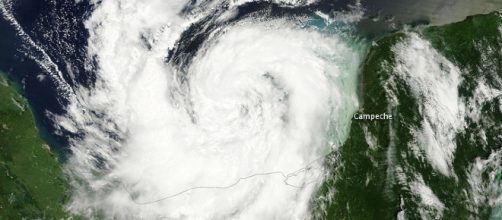Storm Nate made landings in both Louisiana and Mississippi but is now quickly waning in strength. The National Hurricane Center reported that the storm’s wind speeds had dropped to 35 mph. The wind speeds are in steady decline. This is the third storm that the US faced in the past few weeks in a series of natural calamities. Citizens had braced themselves for a hurricane but were relieved to see that Nate weakened by the time it made landfall. The storm made the second landfall in Mississippi. Previously, Mississippi was hit by hurricane Katrina, with Katrina making landfall in Mississippi in 2005.
What are the effects of the storm?
Nate is less severe than hurricanes seen earlier, like hurricane Irma, but still strong enough to cause flash floods. As such, evacuation orders remain effective at large. Flooding occurred in a few areas in Alabama and Florida already. The danger of flash floods in Florida and Alabama can’t be ignored. Some areas in Florida saw 6 feet of salt water flooding, but the water has started to recede now.
Rick Scott, Governor of Florida previously declared a state of emergency in 29 counties. He said that evacuation orders were still in effect for two counties, namely Escambia and Santa Rosa. Shelters in those counties would remain open. Even though it was initially assumed that Nate would be at least a Category-2 hurricane, it was shortly downgraded to a Category 1 hurricane in Mississippi.
A Category-2 hurricane would have resulted in an 11-foot tidal surge and much more damage.
The situation in Central America was markedly different with the storm surging through Puerto Rico damaging homes, roads, vehicles and blocking areas with heavy flooding. As per reports from BBC, as many as 25 people were killed in Puerto Rico and Nicaragua from the heavy downpour and strong winds. Citizens in Costa Rica were moved to shelters in the aftermath of the heavy rains that resulted from Nate. Over 400,000 people lost access to running water in Costa Rica. Many more lost power in Honduras and Nicaragua. In Alabama, as many as 60,000 residents are without electricity. The number is 50,000 in Mississippi and 10,000 in Florida.
UN Secretary-General visits Antigua and Barbuda
According to a CNN report, UN Secretary-General, who visited the regions of Antigua And Barbuda said, "There is an increasing intensity of hurricanes, an increasing frequency, and increasing devastation."
Antigua and Barbuda are two regions which faced much devastation from hurricane Irma.
Secretary-General Antony Guterres is of the opinion that climate change caused in part due to reckless human activities is the reason behind the increasing number of hurricanes.
As the hurricane weakens and normalcy returns rehabilitation should gain pace.

